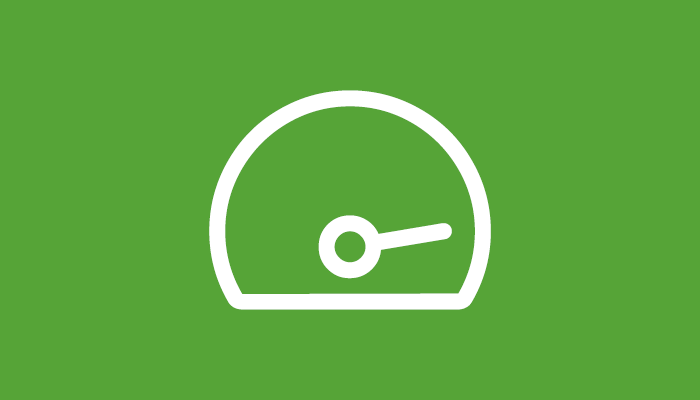How To Become a Bitcoin Developer: A Cheat Sheet
Bitcoin is the most popular and powerful use of blockchain technology, even if it’s not the only one. It’s a medium of exchange, just like the US dollar, except it uses cryptographic techniques, such as elliptic curve cryptography and the Secure Hash Algorithm 256, to verify the transfer of funds and control the creation of coinage. If you don’t want to mine Bitcoin, you can buy Bitcoin through a cryptocurrency exchange. You may not be able to purchase an entire Bitcoin due to its price, but you can buy a fraction of Bitcoin. It doesn’t take a lot of money to invest.
Bitcoin is open-source software, which means it’s developed and maintained via open collaboration and made available at no cost. In other words, any developer can contribute to the project as long as they provide good quality code and respect the guidelines. Core developers work on the Bitcoin blockchain, continuously optimizing the architecture, while software developers create decentralized applications based on the Bitcoin blockchain. If you’re interested in pursuing a career in Bitcoin development and don’t know where to start, here’s a list of ready-made hints and tips from experienced professionals.
Understand The Challenges That a Bitcoin Developer Faces
Contrary to popular opinion, Bitcoin developers don’t just write code. They test, evaluate the work of others, apply patches, and contribute to the project in many ways, so there’s nothing more important than passion when it comes to building a career. New contributors are welcomed and needed, but become familiar with the system before you start contributing. More exactly, understand what current developers are working on. There are many issues of varying difficulty waiting to be fixed. Creating and maintaining a public blockchain is anything but easy.
Core developers are peer-reviewed to ensure they conform with the ethos of Bitcoin, but it’s the role of maintainers to implement them. Being a maintainer isn’t necessarily a permanent position. If you want to learn more about the technical details of Bitcoin and how to take advantage of the existing tools and APIs, explore the developer documentation. It provides a succinct account of the concepts and architecture schematics of the Bitcoin protocol. You could subscribe to the Bitcoin Optech newsletter, but you’re better off joining a chat room or visiting websites accommodating discussions about Bitcoin development.
Learn A Programming Language
For a career in Bitcoin development, you’ll need a strong foundation in programming languages. Bitcoin is written primarily in C++, with several resource files and scripts in other languages. For example, JavaScript is used for the web-based user interface. C++ is somewhat difficult to learn due to its multi-paradigm nature and advanced syntax, so if you’ve never programmed before or never used a low-level programming language, you’ll have a hard time learning the basics. Just so you know, high-level languages like Python and Java are regarded as easy, but they hide much of their complexity. Learning C++ requires critical thinking and problem-solving abilities, which you develop with time as you practice.
Go Through Specialized Training Courses on Bitcoin Skills
Next, you have education. There are specialized training courses for both beginners and experts covering the fundamentals in a self-paced, mobile-friendly format. This learning path will introduce you to blockchain and development on the Bitcoin platform, but you must have previous experience with programming languages and familiarity with the blockchain’s features. Courses are curated from top educational institutions and industry leaders, providing quality training. You can build your expertise and CV through a long-term, coherent learning journey. If you want to enhance your skills, explore new interests, or advance your career, there’s a course to meet your needs.
You can sign up for a coding boot camp, i.e., a concentrated course that teaches you much-needed skills and provides real-world training if you’re looking forward to becoming a Bitcoin developer. Theory is important, but a coding boot camp offers the chance to learn practical skills to get started as a tech professional. It’s a short but intense way to learn the coding skills, languages, and techniques used in the blockchain industry. You get a comprehensive introduction to Bitcoin concepts and the inner workings of the protocol, which is realized via a combination of theory and practical exercises.
Practice, Practice, Practice
Bitcoin, and cryptocurrency in general, has innumerable possibilities in the future. You learn all the theories and concepts by reading and memorizing the code, but it won’t create skill or understanding. The importance of practice can’t be ignored. Granted, you’re a very talented individual, but you must stretch your abilities via deliberate practice to become exceptional at your craft. Go about practicing the scales of Bitcoin development until you become proficient at it. Practicing Bitcoin development involves learning patterns, so the more projects you do, the more you’ll learn about what works and what doesn’t.
Of course, there’s no standard recipe for writing good software, so practice, practice, and practice some more. Coding can be very engaging, but that doesn’t mean it won’t teach you anything. You’re more likely to succeed if you put in the effort and build a reputation. The journey to becoming a Bitcoin developer requires boosting your technical expertise. Become involved in projects and complete your developer portfolio by undertaking tech-related work that interests and excites you. There are many platforms to source web development projects.
Concluding Thoughts
Initially created as a platform for supporting Bitcoin, blockchain demonstrates versatility and security, two important characteristics that have drawn the attention of the public and private sectors. If you want to start coding for the Bitcoin Core but don’t have a specific improvement in mind, you can write patches for the issues you find or contribute to testing. Take the time to read and study the original Bitcoin whitepaper because it provides insight into the blockchain’s design and functionality. The Bitcoin Core, the implementation software for Bitcoin, offers a complete node that allows you to interact with the network. Get used to development tools like GitHub or Git, as they’re of the essence in terms of collaboration and version control.






